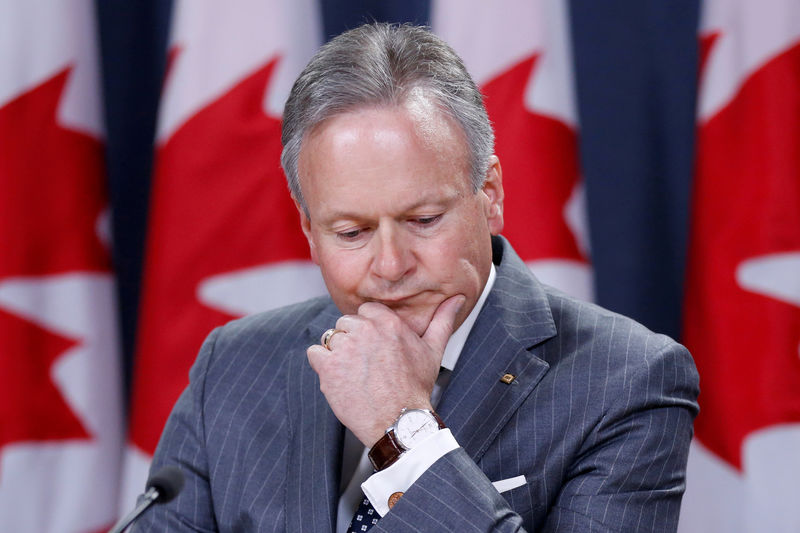By Kelsey Johnson and Fergal Smith
OTTAWA/TORONTO, Dec 6 (Reuters) - Bank of Canada Governor Stephen Poloz will step down when his seven-year mandate expires in June, the bank said on Friday, and the front-runner to replace him could become the first woman to head the country's central bank.
Economists and market strategists surveyed by Reuters this week said Senior Deputy Governor Carolyn Wilkins could be his successor. potential candidates include Tiff Macklem, a former senior deputy governor and now dean of a top Canadian business school, and Jean Boivin, a past deputy governor and current head of BlackRock (NYSE:BLK) Investment Institute.
Poloz, 64, who brought a combination of folksiness and traditional ambiguity to the job, said that during his tenure the bank had "created the conditions for steady economic growth, low unemployment, and inflation close to target through very challenging times," according to a statement from the bank's board of directors.
On his watch, Canada's commodity-linked economy weathered a sharp downturn in oil prices in 2014, the softening of a red-hot housing market and a more uncertain outlook for global trade.
Canadian Finance Minister Bill Morneau thanked Poloz in a statement for the "important role he played as a key steward of our economy" and said he looked forward "to receiving strong recommendations for a new Governor in the coming months" from the bank's board.
The board oversees the selection process, but the finance minister and the prime minister have the final say.
Poloz also earned praise from investors.
"He managed the whole process very well," said Hosen Marjaee, a senior portfolio manager at Manulife Asset Management.
Prior to his appointment as governor, Poloz was CEO of Canada's export credit agency.
The Bank of Canada has held its overnight interest rate steady since October 2018 even as several counterparts, including the U.S. Federal Reserve, have eased. change going into 2020. The markets could easily start to speculate that perhaps somebody more willing to ease could come into the seat," said Derek Halpenny, head of research, global markets EMEA and international securities at MUFG Bank in London.
Unlike some of its global peers, Canada's inflation rate is near the central bank's 2% target, while the economy is operating near capacity.
When Poloz took over for Mark Carney, who left the Bank of Canada in 2013 to serve as Governor of the Bank of England, he made it clear early on that he was not in favor of providing explicit guidance to markets in advance.
"There was a little bit of greater unpredictability relative to other central banks, certainly the way the (European Central Bank) and the Fed spoonfeed everything in advance," Halpenny said. "You certainly didn't get that from the Bank of Canada and Governor Poloz."
When the bank cut rates in response to plunging oil prices in early 2015, which could have contributed to a bubble in the housing market, shocked markets responded by selling the Canadian dollar.
Back then, market players thought Poloz favored a weak Canadian dollar to support exports even though he insisted the central bank's mandate was to target inflation.
But his reputation as a dove has long since faded, with the central bank raising interest rates in 2017 and 2018 as the Canadian economy recovered from its last recession.
The process to select a replacement for Poloz has begun, the board of directors said in the statement. The recruitment process is expected to be completed by spring 2020, with the new governor taking the reins on June 3.
